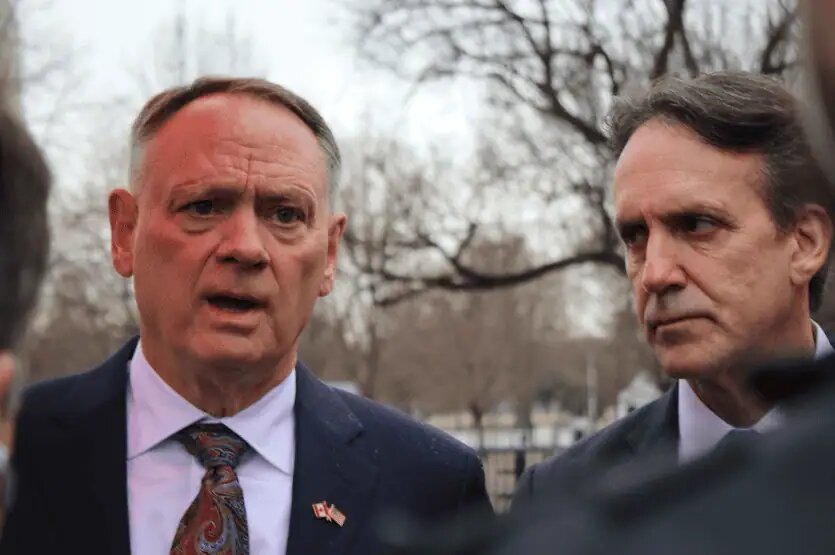Canada Reinforces Border Security Amid U.S. Tariff Threats
Public Safety Minister David McGuinty reaffirmed today that Canada has met U.S. demands on border security, countering claims by President Donald Trump that more needs to be done before planned tariffs take effect on March 4.
Speaking outside the White House, McGuinty emphasized that Canada has taken significant measures to combat illegal trafficking and fentanyl smuggling, key concerns raised by the Trump administration.
“Any test that was put on this country, on Canada, in terms of showing progress and meeting standards for the border—I believe those have been met,” McGuinty said.
Following Trump’s announcement of sweeping tariffs on Canadian imports, Canada swiftly introduced a $1.3 billion border security initiative, including:
- A Canada-U.S. Joint Strike Force targeting organized crime, fentanyl trafficking, and money laundering.
- Expanded aerial surveillance, including helicopters and drones along the U.S.-Canada border.
- A national enforcement initiative, which between Dec. 9 and Jan. 18, led to 524 arrests and the seizure of 46 kg of fentanyl.
Despite these actions, Trump continues to threaten a 25% tariff on Canadian imports, with a lower 10% levy on energy. He has also signed executive orders targeting steel, aluminum, copper, and automobiles, signaling a broader realignment of U.S. trade policy.
Prime Minister Justin Trudeau condemned the tariffs as “unjustified”, stating that Canada will retaliate if necessary, targeting billions in U.S. goods.
“Canada is not the source of problems for the United States,” Trudeau said in Montreal Thursday.
Canadian officials, including provincial leaders, have stepped up diplomatic efforts in Washington to mitigate economic fallout and push for renewed trade talks. Saskatchewan Premier Scott Moe emphasized the importance of focusing on long-term North American stability rather than short-term tensions.
“It’s important for all of us as North Americans to keep our eye on the long game,” Moe said outside the White House.
With the Canada-U.S.-Mexico Agreement (CUSMA) due for review, experts believe Trump’s aggressive trade stance is designed to pressure Canada and Mexico into renegotiating key terms.

